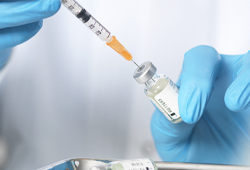 Lannett Company Announces Initiation of Pivotal Clinical Trial for Biosimilar Insulin Glargine
Lannett Company Announces Initiation of Pivotal Clinical Trial for Biosimilar Insulin Glargine
On March 29, 022, Lannett Company (NYSE: LCI) announced the initiation of its pivotal clinical trial of biosimilar insulin glargine, which is being co-developed with Lannett’s strategic alliance partners within the HEC Group of companies. Lannett reported that the first subject in the trial has been dosed, and projects that top line results from the study will be made available towards the end of 2022. If results are positive, Lannett indicated its intention to file a Biologics License Application with the U.S. FDA in early 2023 and, if approved, may potentially launch the product in the first half of 2024.
Study Found Biosimilar HD201 Efficacy Equivalent to Trastuzumab in ERBB2+ Breast Cancer
The March 2022 edition of the medical journal JAMA Oncology published results from a study evaluating the efficacy of HD201, Prestige BioPharma’s proposed trastuzumab biosimilar, compared to referent trastuzumab in a neoadjuvant setting. The global, randomized clinical trial (designated TROIKA, ClinicalTrials.gov Identifier: NCT03013504) was conducted across 70 centers in 12 countries, including Western and Eastern Europe and Asia. The study included 502 women with ERBB2-positive breast cancer treated with either HD201 or referent trastuzumab. The primary endpoint was total pathological complete response assessed after neoadjuvant treatment. Response rates were 45% and 48.7% for HD201 and referent trastuzumab, respectively. The difference between the two groups was not significant at -3.8% and fell within the predefined equivalence margins. On safety data, a total of 433 patients presented with 2,232 treatment emergent adverse events of special interest for trastuzumab during the treatment period, with 220 and 213 patients in the HD201 and referent trastuzumab groups, respectively. The study concluded that HD201 demonstrated equivalence to referent trastuzumab on the efficacy endpoint of total pathological complete response, with a similar safety profile.

